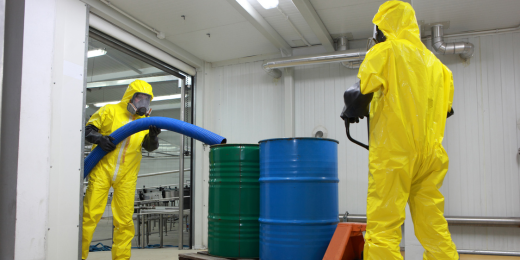The Main Principles Of Reclaim Waste
See This Report on Reclaim Waste
Table of ContentsReclaim Waste Can Be Fun For AnyoneReclaim Waste Things To Know Before You BuySome Known Incorrect Statements About Reclaim Waste Reclaim Waste for DummiesReclaim Waste Fundamentals Explained
Domestic sewage waste refers to the waste and items from a household septic storage tank. The proper management and disposal of domestic sewage waste require fluid waste to be moved to a sewage therapy plant where the proper methods and devices are used to cleanse and dispose of waste.
Business waste usually includes prospective dangers, such as combustible materials or a combination of fluid and solid waste items, and calls for an advanced and in-depth disposal process. The disposal of industrial waste usually entails the filtering of waste before transport to make certain secure and appropriate disposal. Hazardous waste is produced from by-products and drainage of commercial processes and production.
This kind of waste can not utilize the exact same sewer management transport or procedures as septic or industrial liquids. The industrial waste administration process requires the inspection and screening of fluid waste before it undergoes the disposal process (industrial wastewater treatment). Drainage waste is the liquid waste that comes from runoff and excess stormwater in extremely booming areas or cities
Overflow waste can create contamination and flooding if not handled properly. Discover more about sewer cleaning and waste management. Making certain appropriate waste management can stop catastrophes and reduce ecological injury. Both individuals in property settings and specialists in business or manufacturing markets can profit from recognizing the procedures and guidelines of liquid waste management.
Some Ideas on Reclaim Waste You Should Know
Get in touch with PROS Services today to discover concerning our waste management and disposal solutions and the proper means to take care of the fluid waste you produce.
(https://www.pubpub.org/user/leon-aube)Do you recognize what occurs to your water when you draw the plug, flush the toilet or drain the cleaning machine? No? Well, it's worth recognizing. This supposed 'wastewater' is not only a vital source yet, after treatment, will certainly be released to our land, waterways or the ocean. Utilized water from toilets, showers, bathrooms, kitchen area sinks, laundries and industrial procedures is referred to as wastewater.

water used to cool machinery or tidy plant and devices). Stormwater, a kind of wastewater, is runoff that flows from agricultural and urban locations such as roofing systems, parks, yards, roads, courses and gutters into stormwater drains, after rain. Stormwater moves unattended directly to local creeks or rivers, eventually reaching the ocean.
The Buzz on Reclaim Waste
In Queensland, a lot of wastewater is dealt with at sewer treatment plants. Wastewater is carried from residential or industrial sites via a system of drains and pump stations, called sewage reticulation, to a sewage treatment plant. Neighborhood federal governments construct, preserve and operate most sewage therapy plants. Operators are accredited under the Environmental Management Act 1994 to discharge cured wastewater at an appropriate ecological requirement right into rivers.
The Division of Natural Resources encourages neighborhood federal governments concerning handling, operating and preserving sewage systems and treatment plants. In unsewered areas, city governments may require householders to mount individual or family sewer therapy systems to deal with residential wastewater from bathrooms, kitchens, shower rooms and laundries. The anonymous Division of Natural Resources authorizes making use of family systems when they are verified to be reliable.
In some new class, treatment of some stormwater to remove trash, sand and crushed rock has actually begun making use of gross contaminant catches. Wastewater therapy takes place in four phases: Removes solid issue.
Utilizes tiny living organisms knows as micro-organisms to break down and eliminate continuing to be dissolved wastes and great fragments. Micro-organisms and wastes are integrated in the sludge.
Some Ideas on Reclaim Waste You Need To Know
Nutrient removal is not available at all sewage treatment plants due to the fact that it calls for expensive specialist equipment. Clear fluid effluent generated after therapy might still contain disease-causing micro-organisms - liquid waste removal.

This generally suggests wastewater needs to be dealt with or contaminants gotten rid of before it can be released to waterways. Many wastewater moves into the sewerage system. Under the Act, neighborhood federal governments carry out authorizations and licences for environmentally relevant tasks (ERAs) entailing wastewater releases that might have a neighborhood effect. The division provides approvals and licences to Ages involving wastewater releases that might have a local or statewide influence.
6 Easy Facts About Reclaim Waste Explained
Or else, samples are considered research laboratory evaluation. Usually many tests are required to establish the levels of each of the different pollutants such as oils, hefty metals and pesticides in water. Tracking supplies factual details concerning water quality and can validate that licence conditions are being satisfied. The information obtained via monitoring offers the basis for making water top quality decisions.